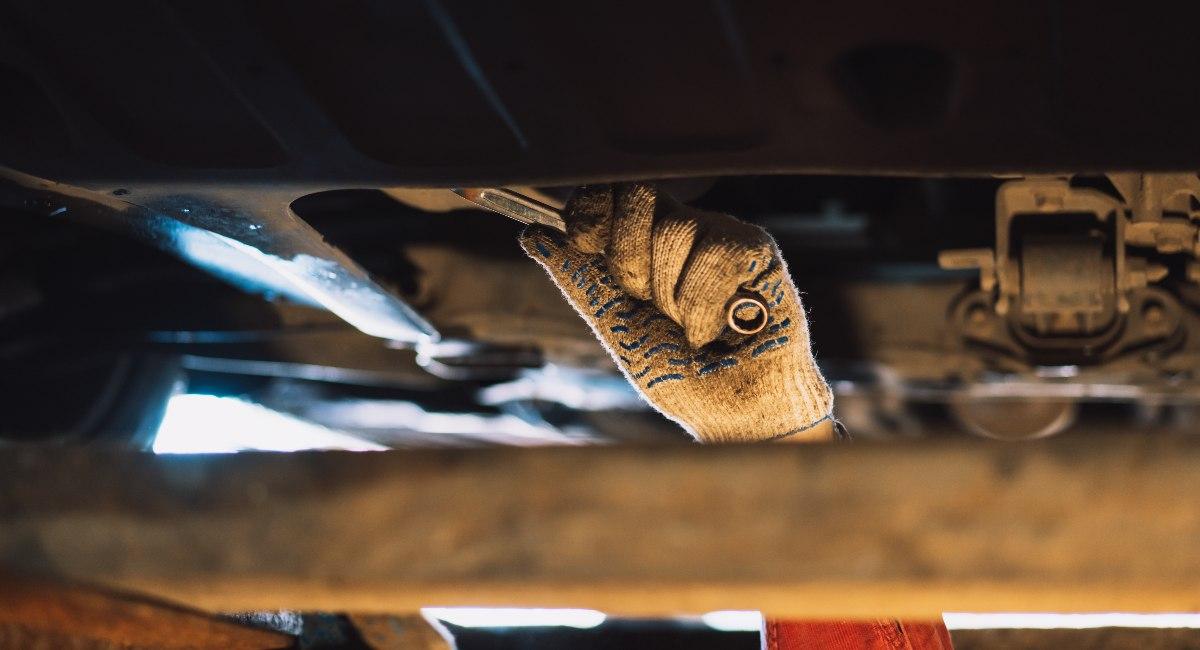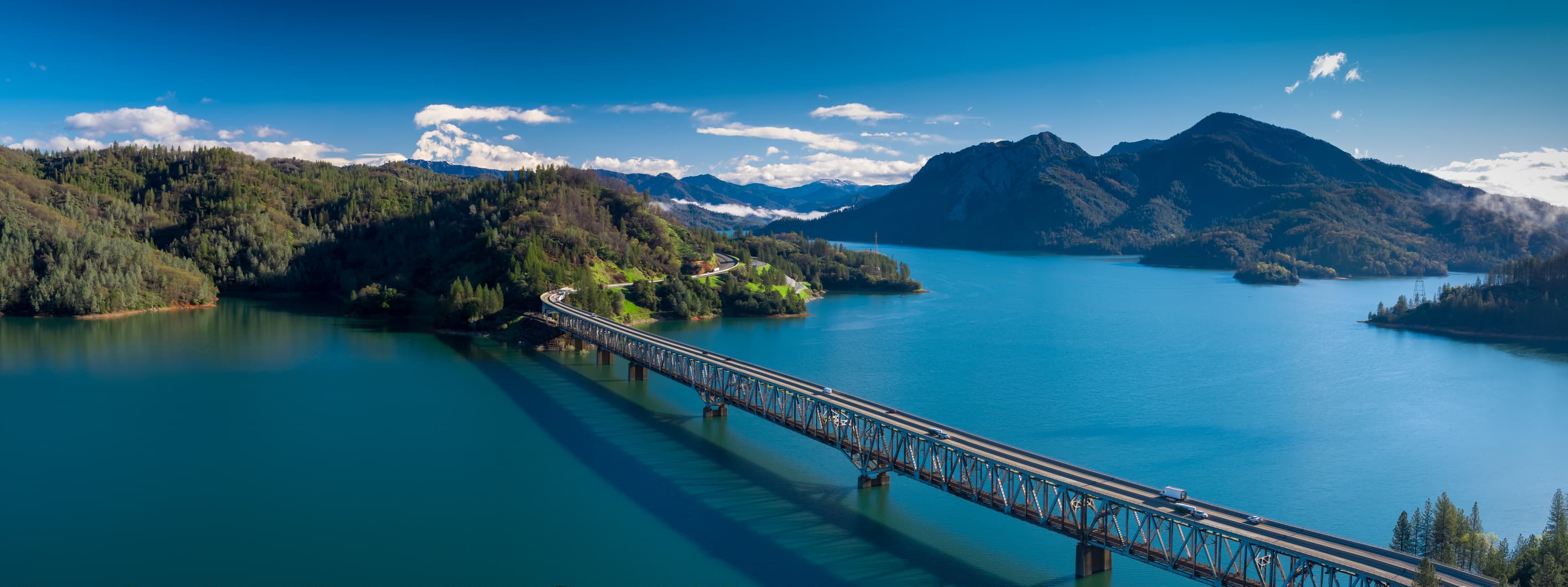Nov 3, 2021
How to Tell If Your RV's Catalytic Converter Is Bad: Complete Diagnostic Guide
How to Tell If Your RV's Catalytic Converter Is Bad: Complete Diagnostic Guide
A
By Aaron Ammar
Learn the warning signs of a failing RV catalytic converter, including P0420 codes, power loss, poor fuel economy, rattling sounds, & more
Common questions
Blog Post
Education

A failing RV catalytic converter typically triggers a check engine light with P0420 code, causes power loss, especially on inclines, reduces fuel economy, and may produce rattling noises or sulfur smells from the exhaust. Your motorhome needs this emission control device to stay street legal and pass inspections. Signs include rough acceleration, failed emissions tests, and that distinctive rotten egg odor. While you can drive short distances with a bad converter, continuing to operate without repair risks engine damage and hefty fines. Replacement costs range from $2,000-$7,600 for motorhomes, but comprehensive RV insurance covers theft-related losses — and unfortunately, catalytic converter theft is targeting RVs more frequently due to their high ground clearance and valuable precious metals.
Don't let a bad catalytic converter derail your next adventure. Here's everything you need to recognize the warning signs, understand your options, and keep your rig running right.
What Does a Catalytic Converter Do in My RV?
Your RV's catalytic converter reduces harmful emissions by chemically converting toxic gases like carbon monoxide into safer substances before they exit the exhaust pipe.
Think of it as your motorhome's environmental cleanup crew. The converter uses precious metals, platinum, palladium, and rhodium to create chemical reactions that transform dangerous exhaust gases into carbon dioxide and water vapor. It's been required on all gas-powered vehicles since 1975, and diesel RVs often have more complex systems.
The converter sits between your engine and muffler, looking like a metal canister in the exhaust system. Inside, a ceramic honeycomb coated with those precious metals does the heavy lifting. When exhaust gases pass through at high temperatures (around 400°F), the magic happens — toxic stuff becomes much safer to breathe.
Why This Matters for RVers: Without a working catalytic converter, you'll fail emissions tests, face legal issues, and potentially harm your engine long-term.
How Do I Know If My RV's Catalytic Converter Is Failing?
The most common signs include a check engine light (often with P0420 code), reduced power, especially on hills, poor fuel economy, rattling sounds, and sulfur-like exhaust odor.
Let's walk through what you'll actually experience when your converter starts going south:
Check Engine Light with P0420 Code
The clearest signal is your dashboard lighting up like a Christmas tree. Modern RVs have oxygen sensors monitoring the converter's efficiency, and when they detect problems, you'll get that dreaded check engine light. The P0420 trouble code specifically means "Catalyst System Efficiency Below Threshold" — basically, your converter isn't doing its job.
Power Loss and Poor Performance
You'll notice this most when climbing hills or accelerating to merge. Your RV feels sluggish, like it's working harder than usual to maintain speed. This happens because exhaust can't flow properly through a failing or clogged converter, creating back-pressure that hampers engine performance.
Fuel Economy Takes a Hit
When your engine has to work harder due to exhaust restrictions, it burns more fuel. Many owners first notice something's wrong when their usual 8-10 MPG drops to 6-7 MPG without explanation.
Strange Sounds and Smells
A rattling noise from underneath, especially when starting up, often means the internal honeycomb structure is breaking apart. That distinctive rotten egg smell? That's hydrogen sulfide from unburned fuel; a working converter would eliminate this odor.
Get a Free RV Insurance Quote
What Causes RV Catalytic Converters to Go Bad?
Engine misfires, running rich or lean fuel mixtures, coolant leaks, and normal wear over time are the primary culprits behind catalytic converter failure.
Here's the thing about catalytic converters — they rarely just die on their own. Something usually murders them:
Engine Misfires and Fuel Issues
Misfiring cylinders dump raw fuel into the exhaust system, which burns inside the converter and creates excessive heat. Over time, this can melt or damage the internal structure. Similarly, engines running too rich (too much fuel) or too lean (not enough fuel) stress the converter beyond its limits.
Coolant Contamination
A blown head gasket or cracked cylinder head can allow coolant into the combustion chamber, poisoning the converter's precious metals and rendering them useless.
Age and Mileage
According to EPA standards, catalytic converters should last 8 years or 80,000 miles under normal conditions, with specified major emission control components covered under federal warranty. But RV converters often work harder due to stop-and-go driving, towing loads, and extended periods of storage.
Pro Tip: Address engine problems immediately. Ignoring misfires or running issues will kill an expensive converter fast.
Can I Drive My RV with a Bad Catalytic Converter?
You can drive short distances with a failing converter, but continuing long-term risks include engine damage, legal problems, and failed inspections.
Short answer: technically yes, but you shouldn't. Here's why:
A completely plugged converter can create so much back-pressure that your engine overheats or won't run at all. Even a partially failed converter makes your RV work harder, potentially damaging other components over time.
Legal Reality Check: Driving without a properly functioning catalytic converter is illegal in all 50 states. You'll fail emissions tests, face fines, and may not be able to register your RV until it's fixed.
What About Removal?
Don't even think about it. Removing or "gutting" your catalytic converter is a federal crime under the Clean Air Act, with fines up to $2,500 per violation. Plus, your RV will be loud, smelly, and completely illegal to drive on public roads.
How Much Does RV Catalytic Converter Replacement Cost?
Expect to pay $2,000-$7,600 for motorhome catalytic converter replacement, with costs varying significantly based on RV size, engine type, and labor rates.
The price shock is real — but let's break down why RV converters cost so much more than car parts:
Size and Precious Metal Content
Larger RV engines require bigger converters with more precious metals. A Class A motorhome converter can cost $5,000+ for just the part, while a Class B campervan might need a $1,200 unit.
Labor Complexity
RV converters are often harder to access than car converters, requiring more shop time. Expect 3-6 hours of labor at $150-200/hour in most areas.
Recent Real-World Examples:
- 2015 Ford F53-based Class A: $7,600 total (parts + labor)
- 2014 Georgetown 350DS: $2,800 dealer quote
- 2002 Fleetwood Southwind: $200-500 for replacement parts
Class B and smaller motorhomes typically see lower costs due to smaller engines and easier access. For specific pricing on your RV type, understanding Class B RV insurance costs can help you budget for both insurance coverage and potential repair expenses.
Money-Saving Tips
Consider aftermarket converters that meet your state's emissions requirements. Federal EPA-compliant units cost less than California (CARB) approved versions unless you need CARB certification. According to Walker Exhaust's EPA compliance guide, replacement converters must meet specific installation requirements, and choosing the wrong type can result in fines up to $2,500 per violation.
What's the Deal with Catalytic Converter Theft on RVs?
RVs are increasingly targeted for catalytic converter theft due to high ground clearance, making access easy, and converters containing valuable precious metals worth hundreds to thousands of dollars.
This isn't just paranoia — it's happening. RV owners across the country report waking up to discover their converters sawed off overnight. Here's why RVs make attractive targets:
Easy Access
Most motorhomes sit higher off the ground than cars, giving thieves easy access to crawl underneath with battery-powered saws. They can remove a converter in 2-3 minutes without making much noise.
Higher Value
RV converters are larger and contain more precious metals than car converters. With platinum, palladium, and rhodium prices still elevated, a single RV converter can net thieves $300-800 at scrap yards.
Prevention Strategies
- Park in well-lit, visible areas
- Consider aftermarket shields or cages
- Etch your VIN on the converter
- Install motion-sensor lighting
- Park in enclosed storage when possible
Insurance Note: Theft is typically covered under comprehensive coverage, but replacement can take weeks due to parts availability.
How Do I Test My RV's Catalytic Converter?
Use an OBD-II scanner to check for P0420/P0430 codes, perform a back-pressure test, and have oxygen sensor readings evaluated by a qualified mechanic.
Here's how to properly diagnose a converter problem:
OBD-II Scan First
Start with a basic code reader (available at auto parts stores for free scanning). Look for these trouble codes:
- P0420: Bank 1 catalyst efficiency below threshold
- P0430: Bank 2 catalyst efficiency below threshold
- P0421/P0431: Warm up catalyst efficiency below threshold
Professional Testing
A qualified shop can perform oxygen storage capacity tests and back-pressure measurements that definitively determine converter condition. Don't just throw parts at the problem — proper diagnosis saves money.
What About "Miracle" Cleaners?
Those $20 bottles of catalytic converter cleaner? They might help with minor carbon buildup, but they won't fix a truly damaged converter. Worth trying before spending thousands, but set realistic expectations.
Insurance Coverage for Catalytic Converter Issues
Catalytic converter theft has dropped 74% in the first half of 2024 compared to 2023, according to State Farm data, but RVs remain vulnerable targets. Comprehensive RV insurance typically covers theft-related replacement costs, minus your deductible.
However, mechanical failure due to normal wear isn't covered — that's considered maintenance. If your converter fails due to engine problems that caused damage, the root cause repair may be covered under mechanical breakdown insurance if you carry it.
Key Point: Understanding your RV insurance coverage types is essential, as comprehensive protection covers theft-related replacement costs while mechanical failure due to normal wear isn't covered — that's considered maintenance. If your converter fails due to engine problems that caused damage, the root cause repair may be covered under mechanical breakdown insurance if you carry it.
Ready to Protect Your RV?
Don't let a failing catalytic converter or theft derail your adventures. Make sure you're covered for both mechanical issues and non-collision losses like theft with the right RV insurance.
Whether you're dealing with a check engine light, planning preventive measures, or just want peace of mind on the road, comprehensive coverage protects against expensive surprises.
Start Your RV Insurance Quote. Get covered in minutes with coverage that understands your lifestyle.
Quality aftermarket converters can perform well and cost significantly less than OEM parts, but ensure they meet your state's emissions requirements (Federal vs. CARB standards).
If the replacement cost exceeds your deductible significantly and you have comprehensive coverage, filing a claim usually makes financial sense — but consider potential premium impacts.
No, a failing catalytic converter will cause emissions test failure in states that require testing. You'll need to repair it before renewal.
A completely clogged converter can cause engine overheating and damage, but a failing converter usually won't directly harm the engine — though it will reduce performance and fuel economy.
Most RV catalytic converters last 8-10 years or 80,000-100,000 miles under normal conditions, though RV use patterns (stop-and-go, towing, storage) can reduce lifespan.
Roamly Insurance Group, LLC ("Roamly") is a licensed general agent for affiliated and non-affiliated insurance companies. Roamly is licensed as an agency in all states in which products are offered. Roamly license numbers. Availability and qualification for coverage, terms, rates, and discounts may vary by jurisdiction. We do not in any way imply that the materials on the site or products are available in jurisdictions in which we are not licensed to do business or that we are soliciting business in any such jurisdiction. Coverage under your insurance policy is subject to the terms and conditions of that policy and is ultimately the decision of the buyer.
Policies provided by Roamly are underwritten by Spinnaker Insurance Company, Progressive Insurance Company, Safeco Insurance Company, Foremost Insurance Company, National General Insurance, Mobilitas Insurance Company, and others.
Connect
© 2025 Roamly All rights reserved.
